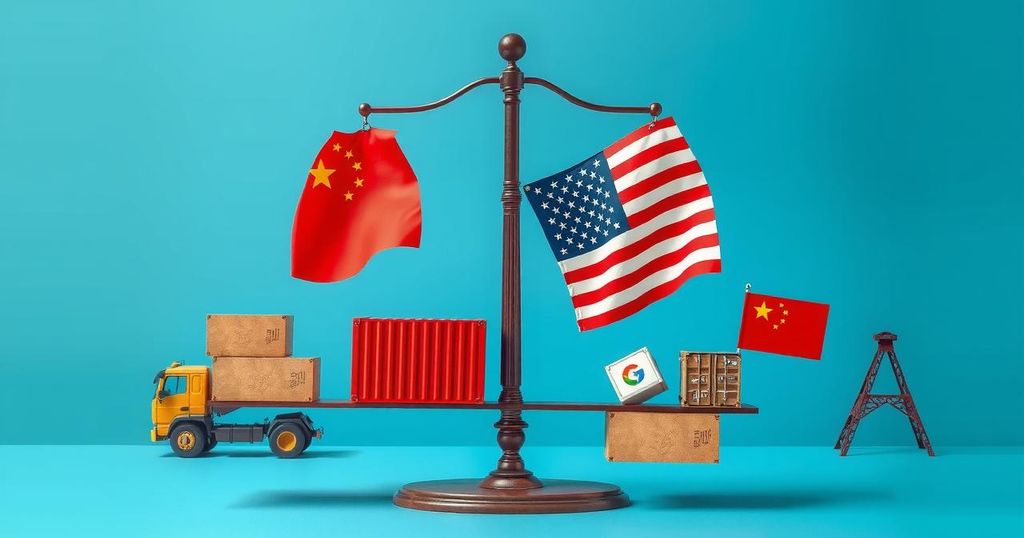Politics
ASIA, BARBARA SHECTER, BEIJING, CANADA, CHINA, CHINA CENTRAL TELEVISION, COMMUNICATION, DONALD TRUMP, ECONOMIC IMPACT, FINANCIAL TIMES, GABRIEL FRIEDMAN, JAMIE, JAMIESON GREER, JOE O ' CONNOR, MEXICO, NATIONAL POST, NEW YORK TIMES, NEWS, NONE, NORTH AMERICA, TECHNOLOGY, TRUMP, U. S, UNITED STATES, WASHINGTON, WEIBO, YUYUANTANTIAN
Omar El-Sharif
China Warns U.S. of Retaliation Over Proposed Tariffs
China has warned the U.S. of retaliation against upcoming reciprocal tariffs announced by President Trump. The warning came during a discussion between Chinese Vice Premier He Lifeng and U.S. Trade Representative Jamieson Greer. As trade tensions escalate, both governments stress the importance of maintaining communication and mutual respect in business dealings.
China has issued a warning to the United States regarding potential retaliatory actions if the Trump administration moves forward with new reciprocal tariffs. The statement was made during a video call between Beijing officials and U.S. Trade Representative Jamieson Greer, as reported by Yuyuantantian, a Weibo account affiliated with China Central Television. China emphasized that it would respond decisively if its interests were threatened.
Moreover, during the call, Chinese Vice Premier He Lifeng and Mr. Greer engaged in a detailed discussion on critical economic and trade matters. While both parties acknowledged the necessity of maintaining communication, Greer articulated significant concerns regarding China’s trade practices. Reports indicate that the U.S. is preparing to unveil a broad reciprocal tariff program on April 2, amidst escalating tensions between the world’s two largest economies.
Additionally, President Donald Trump has already implemented a 20 percent surtax on goods imported from China. In a related context, Chinese President Xi Jinping urged global business leaders to resist protectionist measures, aiming to position China as a dependable partner in the face of mounting U.S. tariffs. Furthermore, various U.S. companies have expressed their desire for both nations to establish a stable business environment, emphasizing that mutual respect is essential for constructive engagement.
In conclusion, the ongoing trade tensions between China and the United States are marked by warnings of retaliation from China should the U.S. implement new tariffs. As both nations seek to communicate effectively regarding their trade policies, the outcome of these negotiations remains critical. With increasing protectionist sentiment, China’s leaders are advocating for cooperation and stability in trade relations to mitigate the consequences of tariffs.
Original Source: financialpost.com








Post Comment